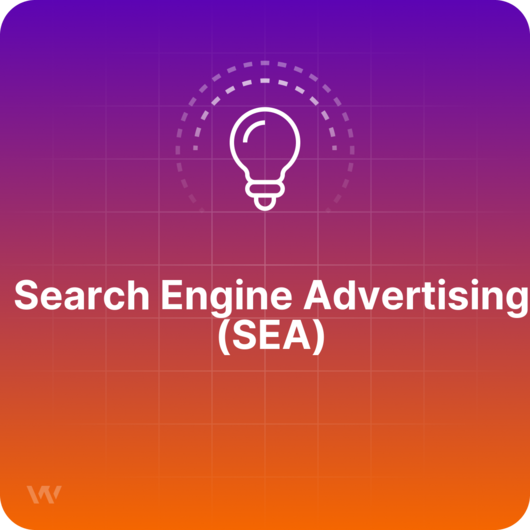Search Engine Advertising (SEA)

TL;DR;
Search Engine Advertising (SEA) is a term used alternatively with Search Engine Marketing to denote a type of Pay-Per-Click advertising that focuses on promoting sponsored content in the SERP, above organic results, offering advertisers exposure and clicks from searches relevant to their business, in exchange for a variable amount of money.
What is Search Engine Advertising (SEA)?
Search Engine Advertising, also known as Search Engine Marketing, is a particular type of Pay-Per-Click advertising that places paid results in the SERP (search engine results page), using a complex system of bidding and payments to determine the value of a click on any given result. Many advertisers use SEA, especially if they haven’t managed to rank organically yet, in order to attract users to their websites. Although the system for paid ads is based on payments for clicks on the ad, it also includes criteria for relevance. This means the ad, and the content it leads to, have to offer something that is relevant to the search term and should not be misleading, just for the sake of attracting customers.
Although sponsored results resemble organic (normal) results and share the same search engine results page, they are clearly separated from organic search results and are marked as ads. They are usually displayed on top of the SERP. In Google, they display a small green square with an “Ad” sign.
Is Search Engine Advertising efficient?
Scientific theories such as resistance to persuasion explain how individuals instinctively avoid messages that are framed as an attempt to convince them of something. That also applies to ads, as people are more difficult to be persuaded to buy something through explicit advertising. This theory is backed up by the data in SERP, which shows that most users (more than 70%) click the organic results, even if they are below the paid results, because they tend to instinctively trust them more than the paid ones. This is why the appearance of paid and organic results has become more and more similar, as Google tries to limit the negative effect of resistance to persuasion and has made search ads look a great deal like organic results, in the hopes that users will be less likely to notice a difference. Yet, even at those stats, there is a huge market left for SEA, and this constitutes the main revenue for companies such as Google. For some advertisers, SEA can prove to be efficient, while for others it may not be the same. The advantage that the system offers is that one can track return on investment exactly and judge for himself how much a SEA campaign is bringing him/her in terms of clicks, sales or leads.

